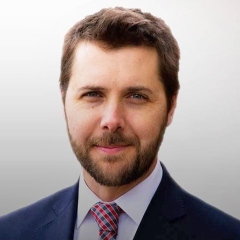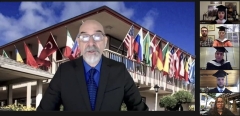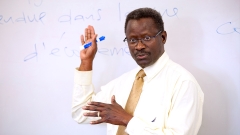Brian Deese to Give Middlebury Institute Commencement Address
| by Sarah Ray
Brian Deese, director of the White House National Economic Council and a 2000 graduate of Middlebury College, will give the Middlebury Institute commencement address on Saturday, May 15.



